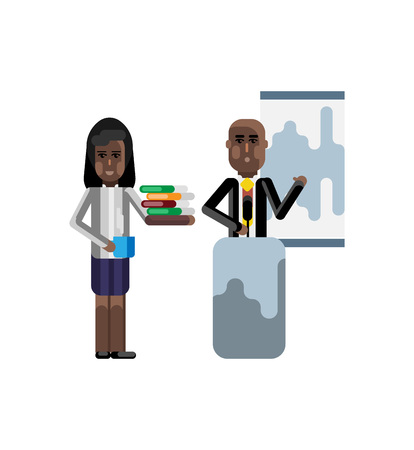Introduction: Why Personality Tests Matter for Career Planning
When it comes to planning your career, knowing yourself is just as important as knowing the job market. Everyone has unique strengths, preferences, and ways of working. That’s why understanding your personality can make a big difference in choosing a career path that not only matches your skills but also brings you satisfaction and success.
Personality tests are popular tools for self-discovery. They help you learn more about how you think, communicate, solve problems, and interact with others. This self-knowledge can guide you toward careers where you’re likely to thrive, or point out areas where you might need extra support or training. Many employers in the U.S. also use these assessments during hiring or team-building to make sure new hires fit well with company culture.
How Personality Assessments Support Career Decisions
Taking a personality test doesn’t lock you into one job forever. Instead, it opens up possibilities by giving you language to describe who you are and what you want from work. Here are some ways personality assessments can help with career planning:
| Benefit | Description |
|---|---|
| Self-Awareness | Discover your natural preferences and tendencies. |
| Career Fit | Identify roles or industries that align with your personality type. |
| Communication Skills | Understand how you relate to coworkers and managers. |
| Personal Growth | Highlight areas for development and learning. |
| Team Compatibility | Find out how you contribute to group projects and dynamics. |
The Value of Self-Insight in the American Workplace
In the United States, workplace culture often values individuality and personal initiative. Employers appreciate candidates who know their own strengths and can talk about their working style with confidence. By taking time to understand your personality, you’re better prepared to choose a career path that fits your goals—and to explain why you’re the right person for the job during interviews or networking events.
2. Overview of Popular Career-Focused Personality Tests
If you’re exploring your career options in the U.S., you’ve probably heard about personality tests that can help guide your decisions. These tools are widely used by job seekers, students, and even employers to better understand strengths, work styles, and ideal career paths. Let’s take a look at some of the top personality assessments that can give you valuable insights for your career planning journey.
Widely Used Career Personality Tests in the U.S.
| Test Name | What It Measures | Why People Use It |
|---|---|---|
| Myers-Briggs Type Indicator (MBTI) | Personality type (16 categories based on preferences) | Helps identify work environments and roles that fit your style |
| CliftonStrengths (formerly StrengthsFinder) | Your top strengths and talents | Shows how to use your unique abilities for career growth |
| The Big Five (OCEAN Model) | Five key personality traits: Openness, Conscientiousness, Extraversion, Agreeableness, Neuroticism | Offers a broad view of your personality and how it impacts work life |
| DISC Assessment | Dominance, Influence, Steadiness, Compliance styles | Useful for teamwork and communication insights in the workplace |
| Holland Code (RIASEC) | Career interests matched to six personality types: Realistic, Investigative, Artistic, Social, Enterprising, Conventional | Matches you with careers that fit your interests and personal style |
| 16Personalities (based on MBTI & Big Five) | A blend of MBTI types and Big Five traits | User-friendly test often used for online self-discovery and career ideas |
| MAPP Career Assessment | Motivational factors and personal preferences | Straightforward guidance on matching jobs to what motivates you most |
| Birkman Method | Personality, social perception, interests, stress behaviors | Dives deep into workplace needs and ideal environments |
| Kiersey Temperament Sorter | Temperament types (Idealist, Rational, Guardian, Artisan) | Simplifies finding roles and settings that suit your temperament |
| Career Key Test | Cognitive styles and career interests based on Holland’s model | Easily matches you to suitable careers using science-backed methods |
Main Features of Top Tests
- MBTI: Focuses on how you process information and interact with the world—great for finding team roles or leadership paths.
- StrengthsFinder: Zeroes in on what you naturally do best so you can leverage those abilities at work.
- The Big Five: Gives a well-rounded picture of your personality without putting you in a specific “type.” Useful for all industries.
How These Tests Can Help You Plan Your Career
The main goal of these assessments is to help you understand yourself better—what motivates you, how you interact with others, and where you shine. By knowing your unique profile, you can pick job opportunities that feel more natural and rewarding. Many U.S. companies also use these tests during hiring or team-building to make sure everyone’s skills are being put to good use. If you’re curious which test is right for you, think about what you want to learn: Are you looking for strengths? A big-picture overview? Or specific job matches?
![]()
3. Pros and Cons of Taking Personality Assessments
Personality tests are popular tools for career planning in the U.S., but its important to understand both their benefits and limitations before relying on the results. Knowing what you can gain—and what you should be cautious about—will help you make smarter decisions about your career path.
Benefits of Personality Tests in Career Planning
- Self-Awareness: These assessments can help you better understand your strengths, weaknesses, work preferences, and communication styles.
- Career Direction: Many people discover new career options that fit their personality type, which they may not have considered before.
- Team Compatibility: Learning about your traits can help you identify which work environments and team roles suit you best.
- Communication Skills: Understanding your own style (and others’) can lead to better workplace relationships and less conflict.
- Personal Development: The insights from these tests can guide your professional growth and learning goals.
Limitations of Personality Assessments
- Not Always Accurate: No test is perfect. Results can change over time or be influenced by your current mood or situation.
- Stereotyping Risk: Theres a risk of putting yourself—or others—in a box, limiting openness to other opportunities or ways of working.
- Cultural Bias: Some tests might not fully reflect the diversity found in American workplaces or may use language that feels outdated or irrelevant.
- Lack of Context: Results don’t take into account your skills, experiences, or values—only personality traits.
- Misinterpretation: Without guidance, it’s easy to misread your results or apply them too rigidly to career decisions.
Quick Comparison: Pros & Cons Table
| Pros | Cons | |
|---|---|---|
| Self-Knowledge | Helps clarify strengths & weaknesses | Might overlook unique individual experiences |
| Career Guidance | Sparks ideas for fitting roles & industries | Lacks skill/interest assessment |
| Workplace Fit | Aids team collaboration & conflict resolution | Stereotypes or limits flexibility |
| User Experience | User-friendly and quick to complete online | Cultural/language biases possible |
Practical Tips for Interpreting Your Results in an American Workplace Setting
- Treat Results as a Starting Point: Use test outcomes as a tool for reflection—not a rulebook for life choices.
- Discuss with Others: Share your findings with mentors, managers, or colleagues for different perspectives.
- Avoid Labels: Don’t let one test define who you are. Stay open to change and growth throughout your career journey.
- Cultural Context Matters: Consider how American workplace norms—like teamwork, initiative, and diversity—might influence how you interpret your results.
- Pursue Professional Feedback: If possible, talk to HR professionals or career coaches who understand how these tests are used in U.S. companies.
4. How to Choose the Right Test for Your Career Goals
With so many personality tests available, it’s important to pick one that truly matches your career planning needs. The right assessment can help you gain self-awareness, understand your strengths, and make informed decisions about your future. Here’s how you can select the most relevant test for your unique situation:
Identify Your Main Career Objective
Start by asking yourself what you want from a personality test. Are you looking to discover your natural strengths? Do you want guidance on leadership roles, teamwork, or communication style? Knowing your primary goal will help narrow down your options.
Consider Industry Preferences
Certain industries may value specific types of assessments. For example, tech companies might favor logical reasoning and problem-solving tests, while creative fields may focus more on innovation and adaptability. Check if there are any preferred tools in your chosen field.
Common Industry Preferences Table
| Industry | Popular Test Types | Main Focus |
|---|---|---|
| Technology | MBTI, DISC | Logical thinking, team fit |
| Healthcare | StrengthsFinder, Big Five | Empathy, reliability |
| Business/Finance | DISC, Hogan Assessments | Leadership potential, risk tolerance |
| Creative Arts | Enneagram, MBTI | Creativity, adaptability |
| Education | Big Five, StrengthsFinder | Communication, patience |
Match the Test with Your Personal Development Goals
If you’re interested in improving certain skills—like communication or leadership—choose a test known for providing insights in those areas. For example, the DISC assessment is great for understanding work styles and team dynamics, while StrengthsFinder helps identify and leverage your top talents.
Check Accessibility and Credibility
Select tests that are well-recognized and easy to access. Many reputable assessments offer online versions with instant feedback. Look for tools backed by research and used by professionals in the U.S. workforce.
Quick Checklist for Choosing a Test:
- Does it align with my career goals?
- Is it respected in my industry?
- Will it give me actionable results?
- Is it credible and widely used in the U.S.?
- Can I easily access the test?
Selecting the right personality test is all about matching your needs with what each assessment offers. By considering your goals, industry standards, and personal development plans, you’ll be able to make an informed choice that supports your career journey.
5. Next Steps: Using Your Results for Career Growth
After taking a personality test, you might be wondering what to do with your results. In the U.S. job market, understanding your strengths and preferences is just the beginning. Here’s how you can turn those insights into real career growth.
Apply Your Results to Job Searching
Your personality test results can help you identify industries and roles that fit your natural tendencies. For example, if your results show strong communication skills and extroversion, careers in sales or public relations might be a great match. If you prefer analytical thinking and working independently, consider roles in data analysis or research.
| Personality Trait | Suggested Careers | Job Search Tips |
|---|---|---|
| Extroverted | Sales, Marketing, Customer Service | Network at industry events; seek team-based environments |
| Introverted | Data Analysis, Writing, Research | Highlight independent work skills on your resume |
| Creative | Design, Advertising, Content Creation | Create an online portfolio; showcase creative projects |
| Detail-Oriented | Accounting, Project Management, Quality Assurance | Emphasize accuracy and organization in applications |
Leverage Insights During Interviews
U.S. employers value self-awareness. Use your personality test results to answer common interview questions like “What are your strengths?” or “How do you handle challenges?” Be specific—mention how your traits have helped you succeed in past roles and give concrete examples.
Example Interview Answers:
- If you’re a strong collaborator: “According to my StrengthsFinder results, I excel in teamwork and communication. In my last role, I led a cross-functional project that improved our workflow.”
- If you’re highly organized: “My MBTI profile highlights my attention to detail. I’ve used this strength to manage complex schedules and meet tight deadlines.”
Plan for Long-Term Professional Development
Your personality assessment isn’t just about landing your next job—it’s a tool for lifelong growth. Use the results to set goals for developing new skills or improving weaker areas. Many U.S. employers support ongoing learning, so look for opportunities such as workshops, mentorships, or online courses that align with your profile.
| Development Area | Recommended Actions | Resources in the U.S. |
|---|---|---|
| Leadership Skills | Pursue leadership training; volunteer for team lead roles | SHRM seminars; LinkedIn Learning courses |
| Communication Skills | Join Toastmasters; attend networking events | Toastmasters International; Meetup.com groups |
| Technical Skills | Take relevant certification courses; practice hands-on projects | Coursera; Udemy; local community colleges |
| Cultural Awareness | Diversify your network; seek cross-cultural experiences at work | Diversity & inclusion training at most large companies |
Create an Action Plan Based on Your Personality Test Results
- Review your top strengths and development areas.
- Select 2–3 career goals based on these insights.
- Create a timeline for achieving these goals (e.g., within 6 months).
- Track your progress and adjust as needed.
Tip:
If you’re unsure about next steps, consider sharing your results with a mentor or career coach—they can offer personalized advice tailored to the U.S. job market.
The key is to use your personality test as a roadmap—not a final destination—for ongoing career success in America’s dynamic workplace.


